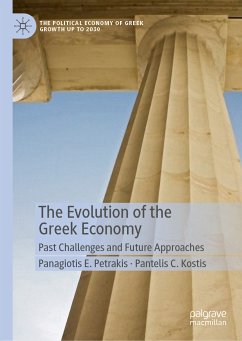
The Driving Force of the Collective (eBook, PDF)
Post-Austrian Theory in Response to Israel Kirzner
Versandkostenfrei!
Sofort per Download lieferbar
72,95 €
inkl. MwSt.
Weitere Ausgaben:

PAYBACK Punkte
36 °P sammeln!
This book investigates why Austrian economists fail to apply the spontaneous order framework to cooperative relationships - such as a dynamic and evolving public sector - that might complement a thriving market. In direct response to Israel Kirzner's The Driving Force of the Market, Nell challenges traditional Austrian economics by proposing "democratic process theory" as a parallel to market process theory, highlighting the possibilities for an economic organization that harnesses the power of transparent and effective democracy. Keeping in mind the central problems experienced in socialist a...
This book investigates why Austrian economists fail to apply the spontaneous order framework to cooperative relationships - such as a dynamic and evolving public sector - that might complement a thriving market. In direct response to Israel Kirzner's The Driving Force of the Market, Nell challenges traditional Austrian economics by proposing "democratic process theory" as a parallel to market process theory, highlighting the possibilities for an economic organization that harnesses the power of transparent and effective democracy. Keeping in mind the central problems experienced in socialist and capitalist countries due to self-interested political and economic actors, The Driving Force of the Collective highlights the public sector advantages of allowing culture and institutions to evolve endogenously as a spontaneous public sector order.
Dieser Download kann aus rechtlichen Gründen nur mit Rechnungsadresse in A, B, BG, CY, CZ, D, DK, EW, E, FIN, F, GR, HR, H, IRL, I, LT, L, LR, M, NL, PL, P, R, S, SLO, SK ausgeliefert werden.












